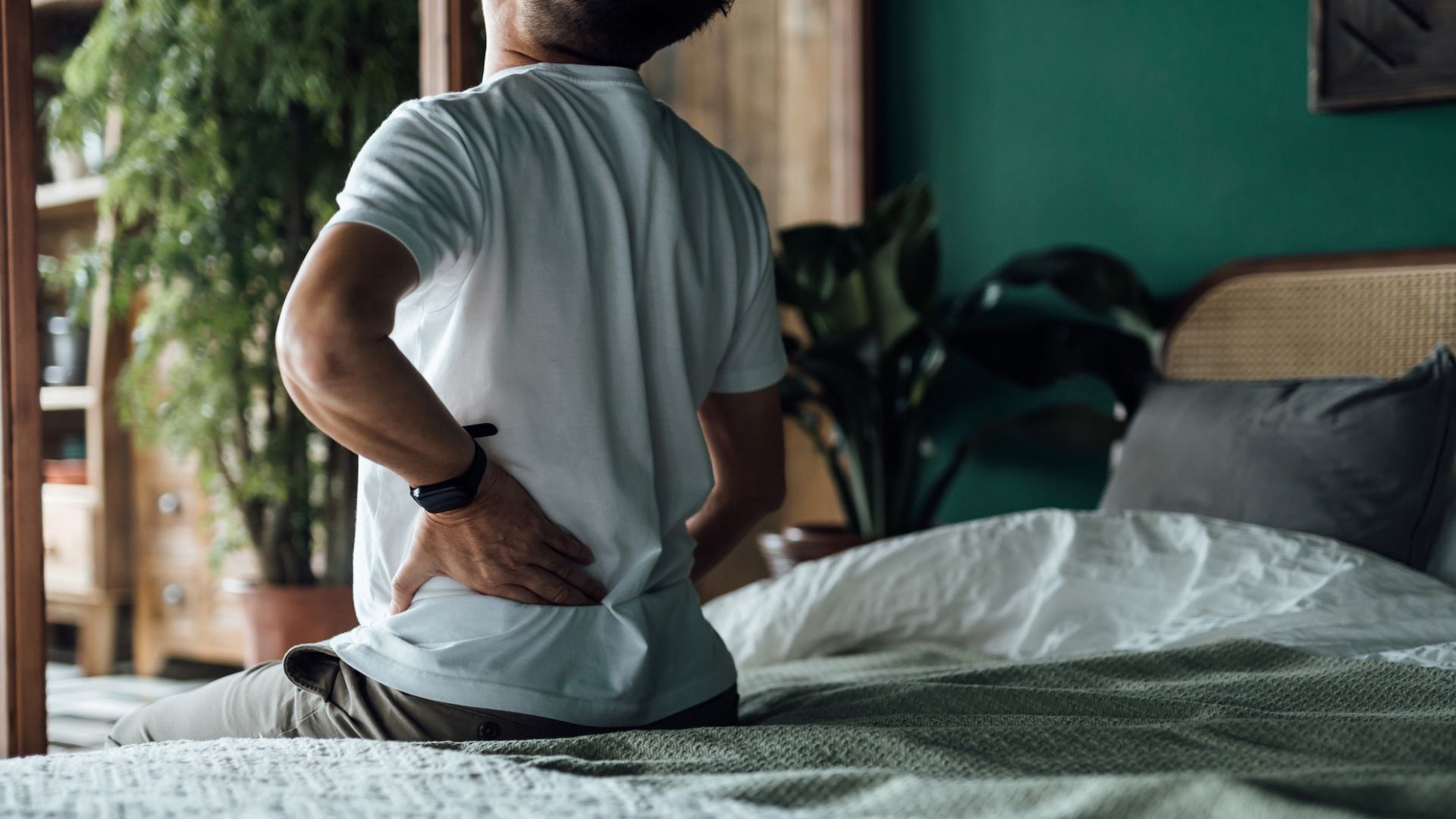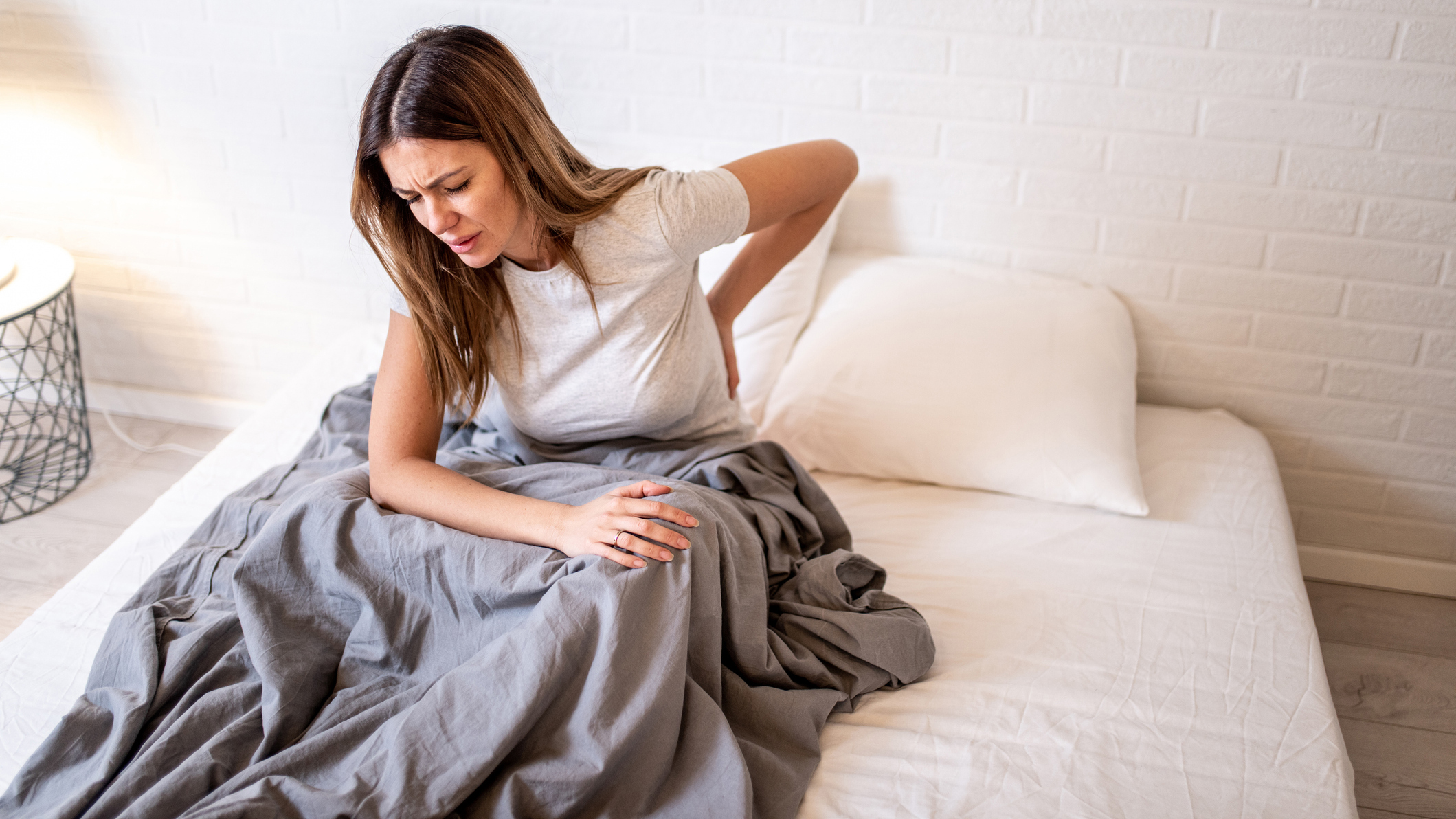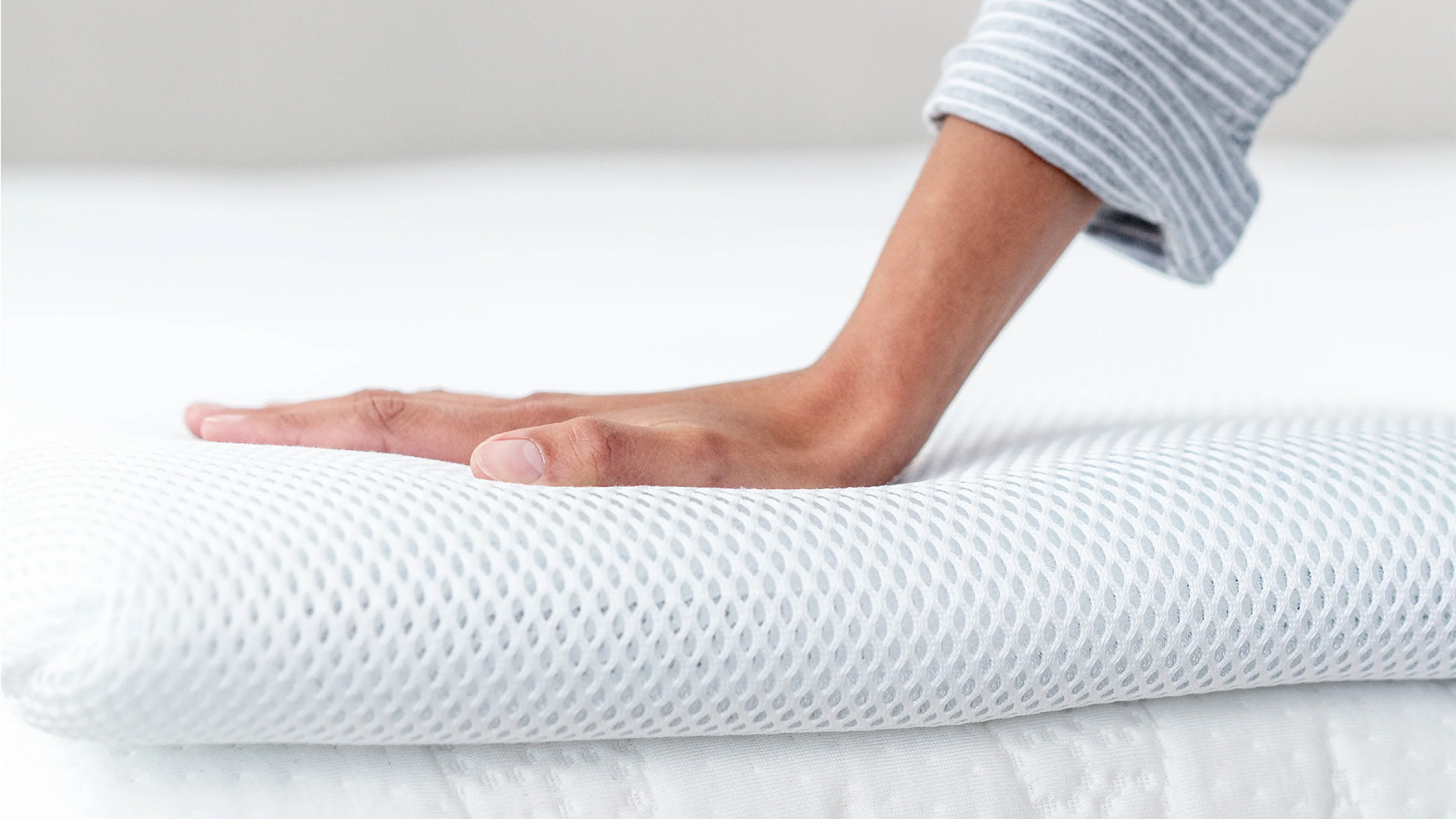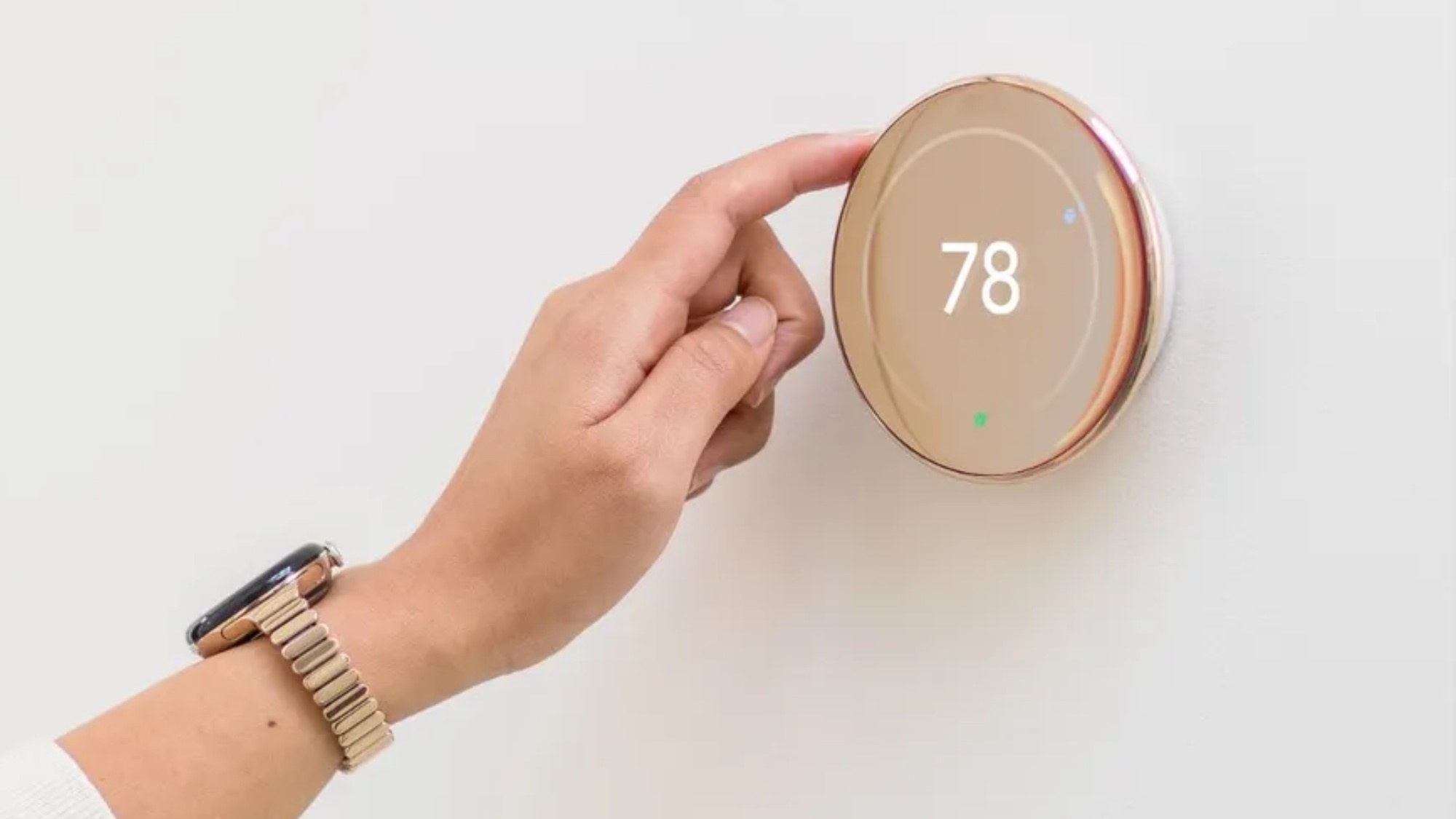5 simple ways to make a hard mattress more comfortable
How to make your too-hard mattress more comfortable

It's disappointing when the mattress you spent hours researching finally arrives, only for it to feel too hard. While a mattress can seem perfect on paper, firmness is subjective and your body type and sleep position can alter the way a mattress feels.
Whether your mattress is brand new or you've been sleeping on it for a while, there are ways to make your hard mattress more comfortable. Of course, if you're still within your sleep trial period, returning it is always an option. If you're in the process of shopping for a new mattress, our best mattress of 2025 guide contains some great options.
But first, let's run through your options to making a hard mattress feel more comfortable.
How to tell if your mattress is too firm
Some mattresses can require a break-in period to soften slightly. However, if you're unsure whether your mattress is too firm, there are several telltale signs.
You're waking up in pain

If you find yourself waking up in pain in the middle of the night or losing sleep because of your level of discomfort, your mattress is likely to blame. When a mattress is too hard, pressure builds along the touch-points of the bed. For back sleepers, this area across the top of the shoulders and the base of your spine. For side sleepers, this is across the shoulders, hips and knees.
A clear indication that your too-firm mattress is to blame for your pain is when the pain dissipates throughout the day, only to re-emerge during the night and upon waking.
It feels like sleeping on a plank of wood
If your mattress has little to no responsiveness (or 'give'), it's a strong indication that it is too firm for you. Side sleepers, lighter than average bodies and and those with back pain are generally the most affected by a too-hard mattress, as these are all sleep types who require a certain amount of pressure relief from their mattress in order to sleep comfortably.
In addition to a painful buildup of pressure, a mattress that is too-firm can worsen existing back pain due to the spine being held out of alignment with the rest of the body. If you're looking for a top-rated mattress for sleepers with back pain, our best mattress for back pain guide spans options for all sleepers and budgets.
Sign up to get the BEST of Tom's Guide direct to your inbox.
Get instant access to breaking news, the hottest reviews, great deals and helpful tips.
5 ways to make your hard mattress comfortable
Below is a quick step-by-step guide to solve the issue starting with determining how new your mattress is:
1. Wait out the break-in period
Most mattress firms will only accept a return after it has been slept on for a minimum of 30 days. This is referred to as a break in period. The break in period is the time it takes for you to adjust to your new mattress, and gives your mattress an opportunity to adjust into its new environment. If your mattress feels too hard but it hasn't quite been 30 days, we suggest waiting it out. In the meantime, check out our guide to how long it takes for a new mattress to soften up.
2. Add a mattress topper

A mattress topper is an excellent way to provide plush sink-in support for a mattress that is too firm, and many of the year's best mattress toppers are designed specifically for this purpose. When shopping for a new mattress topper, look for one with a depth of between 2" and 4" - anything thinner won't provide the pressure relief you require. Toppers made of fabrics like memory foam, down, down alternative, feather, gel based memory foam can help provide a buffer between you and your too-firm mattress.
3. Change it for a new one

If you're beyond the 30 day break in period and still within your sleep trial period, you can send it back and request an alternative mattress. However, it's worth keeping in mind that some brands, like Saatva, will charge you a return fee. As a result, it's always worth making doubly sure that there isn't anything you can do to remedy the situation without parting with more cash.
4. Check it's the right way up
Hybrid mattresses are crafted with a firm foundation and plusher comfort layers and are not designed to be flipped. However, if your mattress feels uncomfortably firm, it's well worth check that it's the right way up. Check around the outside of the mattress for a name or logo. If the logo's upside down, then so it your mattress.
5. Adjust the temperature

Adjusting the heat in your bedroom can alter the firmness of your mattress. Memory foam mattresses in particular are more malleable in warmer temperatures. Keeping the temperature at least at 68 degree Fahrenheit (20 degree Celsius) is recommended for a softer mattress. The main disadvantage is that if the room is too hot then, this might cause discomfort, especially if you’re a hot sleeper. You can work around this by heating the room a few hours before sleep or by simply keeping a window open.
The last resort
If you're explored and exhausted all of the options above, there is one more card up your sleeve - returning your mattress and buying a brand new one. Knowing specifically how to return your mattress comes down to the manufacturer you purchased it from. But if you're requesting a return within the sleep trial period (and after the 30 day break in period), most brands offer refunds provided that the mattress is undamaged.
When re-purchasing a mattress, ensure you choose a mattress which suits your body weight and sleeping position. The general recommendation for lightweight people is to opt for a softer to medium mattress, while average to heavier sleepers medium firm mattress.

Becky is a Sleep Staff Writer at Tom’s Guide covering all things sleep-related including product reviews, research studies, news and explainers. She works on specialist bedding content and is responsible for buyer’s guides like the best pillows for all sleepers and best mattress protectors focusing on popular brands such as Tempur-Pedic, Avocado, Coop Home Goods and more. Becky is a PPA accredited journalist who is keen to explore the intricacies of sleep, its effects on skincare, mental wellbeing and work performance. While not thinking of sleep, she can be seen reading in cosy bookshops or learning about global food culture.
